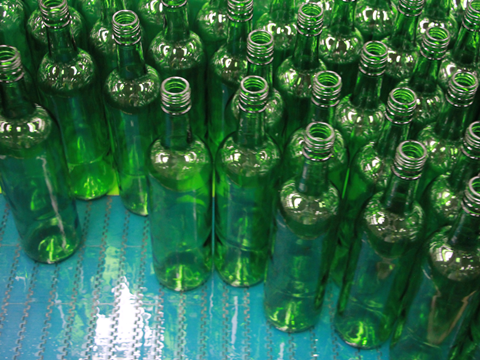
Glass container manufacturer Encirc and industry research and technology organisation Glass Futures are partnering on a project to create what they believe should be the world’s most sustainable glass bottle.
In the Q1 of 2021, Encirc’s Derrylin plant in Northern Ireland will be pioneering the use of biofuel in one of its furnaces, hoping to pave the way for an industry-wide reduction in carbon emissions.
Made out of plant materials, Encirc says that biofuel is a renewable and much more sustainable fuel source than those traditionally used by the glass sector, and it is also thought to be able to reduce carbon emissions by up to 90% when compared to fossil fuels.
Alongside this, Encirc will be using up to 96% recycled glass to create the new bottles, in the hopes of further reducing the carbon footprint of its products.
Encirc also has aspirations to boost the sustainability of its logistics operations by switching out its fuel sources for biofuel.
The UK trial will reportedly be the world’s first, and the results will feed into UK Government policy around decarbonization. The project forms part of the Department for Business, Energy and Industrial Strategy (BEIS) Energy Innovation Programme, within which Glass Futures is leading a £7.1m project to help determine the most effective route to switch the glass sector to the use of low carbon fuels.
Rob Turvey, sales and marketing director at Encirc, commented: “This has never been attempted before and is a massively exciting innovation opportunity for us at Encirc, our customers and, of course, their consumers.
“The trial will help us support our customers in our joint ambitions to decarbonise the container glass supply chains and further demonstrate why glass is the most environmentally beneficial packaging format for the world’s leading food and beverage brands.”
Aston Fuller, general manager of Glass Futures, said: “We are proud to be a part of a trial that both BEIS and Encirc have made possible, Encirc has taken a pragmatic approach and is pushing the innovation boundaries with a full-scale trial of a new alternative fuel. It is great to see the whole supply chain collaborate to explore what is possible within the industry.
“While the UK glass sector has made progress by more than halving its emissions over the past 50 years, it is vital we work together to advance towards the net-zero carbon goal.”













